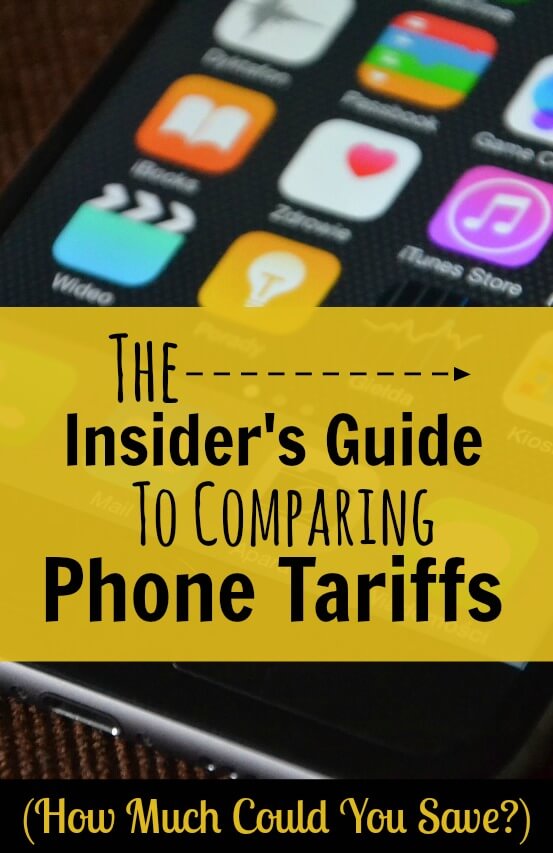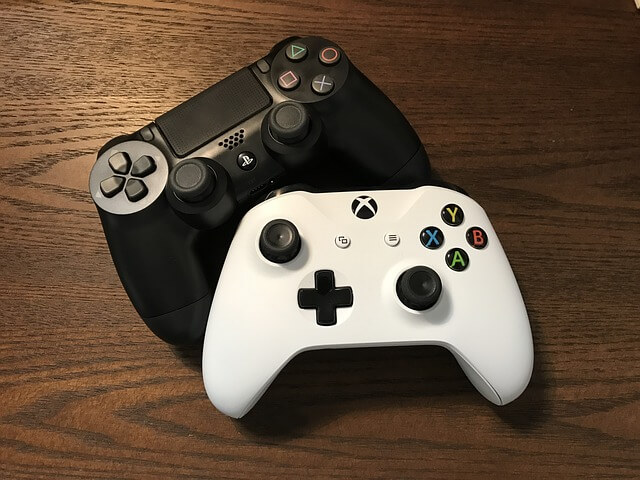Contents
Comparing cell phone plans can often feel like trying to swim through honey.
There are just so many options available from so many carriers that comparing cell phone plans to find the most cost-effective options can be something of a challenge.
Luckily, as someone who has spent several years working in the cell phone industry, helping customers day after day to decide on the best tariff for their needs, you’re about to learn the simplest strategy I’ve found for landing the right cell phone plan every time.
Comparing Cell Phone Plans: The Simple 6 Step Process
Gather Your Cell Phone Bills
The best place to start your comparison is the gather your cell phone bills for the last 3-6 months. Ideally these should be itemized bills showing a detailed breakdown. If you can’t locate them, many cell phone providers will be able to supply copies or let you access your bills online.
The most basic elements that you want to pay attention to are the number of minutes you spent making calls, the number of texts that you sent and the amount of data you got through if you’re a smartphone user. These are the basic elements that make up cell phone plans so are a handy guide for selecting the right plan.
Calculate Your Average Usage
Once you have your bills lined up, make an average of each of the three key ingredients. For example add up all the texts you sent over the last few months, then divid this by the number of bills you’re examining. This will tell you, on average, how many you send. Carry out the same process for calls and data too.
Remember that we are creatures of habit so unless your situation changes significantly (new job, partner etc.) then your usage is likely to follow along a similar path in the near future.
Be aware of any “outliers” – months where your usage may have been significantly lower (because you were on vacation for 2 weeks for example) or particularly high (such as when working away from home for a period of time).
Try to decide if these more “extreme” months really are odd blips, or if they’re likely to become a regular occurrence. In such cases, you might want to ignore the average figure and instead select the highest number of texts, minutes and data used recently.
Many people are surprised by their actual usage – and the figures you might have guessed in the cell phone shop are often significantly different to your actual usage. By comparing cell phone plans based on actual data rather than your assumptions, you’ll be far better prepared to select the ideal tariff for your needs.
Once you’ve got your actual figures it’s time to compare your average usage to the networks themselves.
Compare Network Coverage
Where do you live? No cell phone network is perfect and it’s common to find that one network is far more reliable than another in a certain place. Consider where you’re most likely to be using your cell (at work, around your local town, at home etc.) and ask your friends or work colleagues how their provider performs in these areas.
They may all act similarly but it’s always a question worth asking. After all, no matter how cheap your cell phone plan is, if you can’t get any reception it’s still too expensive!
Comparing Cell Phone Plans
By this stage in the process you’re actually ready to start comparing cell phone plans. You have a good idea of your usage figures and you’ve also ruled out any cell phone network with poor coverage.
Now you need to pull up the available plans from the remainder and find the plan that most closely matches your own usage. Using the network’s websites can be a handy way of doing this, without feeling under any pressure from a salesman.
Here are direct links to some of the most popular US cell phone networks:
Here are direct links to some of the most popular UK cell phone networks:
Remember when comparing cell phone plans that you’re looking for the plan that covers your average usage, with just a little “wiggle-room” for those heavier months. What you don’t want to be doing is paying for a plan with more monthly texts than you’ll use in a year!
Hopefully, with just a little research your comparison shopping should highlight one or two clear-cut winners. But there is one more step worthy of consideration before you “sign on the dotted line”…
Consider Bolt-Ons
Many cell phone networks offer “bolt-ons” – additional features that can be added to a plan for a small monthly charge. Of course, generally the networks try to use these in order to encourage you to spend more money with them, not less. But they can be turned to your advantage.
For example you may find “bolt-ons” that reduce the cost of ringing premium rate numbers like your bank, or that allow you to call other phones on your network for free.
While these bolt-ons are unlikely to be deal breakers, going back to your original bills that you gathered to see if there are certain numbers you call all the time (your partner, for example) and seeing if there are relevant bolt-ons can further reduce your costs.
Decision Time
And that really is the simple process. Now all you need to do is to take the network that offers the best coverage in your area, and select their cell phone plan that most closely matches your needs. Doing so I’ve regularly been able to shave 20-50% or even more off people’s cell phone bills. And it’s such a simple process I’m surprised more people don’t spend an hour comparing cell phone plans!
Bonus Tips
By following through the above exercise, comparing cell phone plans should become a relatively simple process. In a short space of time you should be able to narrow down the available plans to just one or two that best suit your needs while keeping your costs as low as possible.
However as an “industry insider” it would be remiss of me to omit a few additional tips which can reduce your cell phone bill even further without compromising on the quality of service.
Test Different Sales Channels
You might be surprised to hear that different sales channels may offer different deals. So while checking online using the links mentioned earlier is certainly a good start, you might also want to consider ringing the sales telephone number for a few networks because sometimes speaking to someone in person may actually get you an even better deal.
Upgrading? Speak To “Retentions”
Running a cell phone network costs roughly the same whether they have a hundred customers or millions. This is because it is technology-dependent and the network needs it’s cell phone masts to offer coverage anywhere – even if they only have a few customers.
The point is that your cell phone tariff is mostly profit to them; and they’d rather have less profit than none at all. Consequently if you’re currently coming to the end of your contract and are considering moving to another network, before you do try ringing them up and asking for “retentions” or “disconnections”.
In essence you want to speak to someone in person and explain that value-for-money is important to you and as a result you’re considering moving to another network. Almost without exception there’ll be someone on the other end of the phone who is more than happy to offer you a “special deal” to stay with them.
You’ll be surprised at just how much they can slash off your monthly bill if you offer to walk 😉
Sim-Only Deals
One final tip worthy of mention when it comes to comparing cell phone plans is to consider so-called “Sim-only” deals. With these you simply pay for your Sim on a monthly basis – and place it into a handset that you either already own or buy specially. On other words, the network isn’t subsidizing a top-of-the-range handset by hiding the price in your price plan.
And because they’re not paying out a good portion of your monthly payments to fund your expensive cell phone, they’ll often offer incredibly good deals. I have halved my cell phone plan many times over the years, simply by opting to use an older phone I already owned and asking about tariffs specifically for this purpose.
How do you save money on your cell phone use? Please leave a comment below with your own money-saving tips…












[…] may surprise you is just how much money many people can save if they know what they’re doing. Comparing cell phone plans with your normal usage figures can quickly reveal tariffs that can save you a bunch of money. And I […]
IMHO, Cheapest cell phone…..pay as you go, Speakout from 7 eleven in Alberta Canada. I’m retired so I only need a cell to text my family when we are travelling around Alberta and British Columbia, Canada and of course emergencies ( never had one yet). I spend about $50 a year on cell phone bill. Yah me!
[…] Particularly if you decide to renew your contract, but opt not to take a new handset, you may find that your cell phone provider is willing to offer you a surprising sum of money just to sign another contract. […]
I like how you said that you will be better prepared to choose your ideal cell phone plan by considering your actual usage data. My brother-in-law needs a new phone plan for the cell phone he bought a couple of days ago. I’ll make sure that he takes his average usage into account so he can find the perfect plan to cover all of his needs.